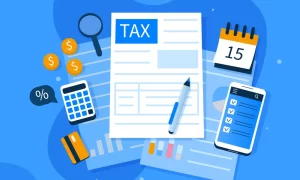
There are many different ways to raise your credit score. In this article, we will look at some of the most important factors to consider. It is important to note that everyone’s financial situation is unique, so different lenders will have different criteria for granting credit. The length of your credit history and your income may be more important to lenders than others. But regardless of which type of credit you are applying for, there are ways to boost your score. Read on to learn how.
Your payment history makes up 35% of your total credit score. It will show how often you have missed payments, how many accounts you have, and what percentage of that total is debt. If you have a high debt to credit ratio, your score will reflect that. However, if you have made payments on time for a long time, this may help your overall score. While a new loan may temporarily hurt your score, if you have paid off several of your current loans, your score will increase.
Your credit score affects many aspects of your life. It can affect everything from getting approved for a credit card to receiving a low interest rate on a mortgage. Understanding your credit score can set you up for financial success. Lenders use credit scores to evaluate a person’s likelihood of repaying debt. By knowing your credit score, you can get approved for credit cards, car loans, and even enter into business deals. Your score helps lenders evaluate your repayment history and determine how much you can borrow, and what your interest rate should be.
Although credit scores vary across the country, a score in the range of 700-749 is considered excellent by many lenders. If you’ve had major credit issues, such as bankruptcy, your credit score may be very low. Lenders will most likely decline your application if it is below this level. In many cases, the only way to get credit is to apply for a secured credit card. With a secured credit card, you’ll need to pay a cash deposit equal to the spending limit on the card. Some utilities may require a huge security deposit, so your credit score can be even lower than your credit history.
Using your credit wisely can raise your credit score. While you should never go overboard applying for credit, you shouldn’t be afraid to leverage your good credit history. Your credit score depends on how many different types of accounts you have. The more diverse your accounts, the higher your credit score will be. You can make the most of your credit score by avoiding late payments, keeping balances under 30%, and checking your credit reports often. If you do these three things, your credit score will thank you!
There are no major differences between the three major credit bureaus, but you should be aware of the differences between these two types of scores. It’s also a good idea to sign up for alerts if your score changes. The scores of different bureaus will vary by a few points or by a significant amount, so it’s best to check your reports regularly. If your score does change, take action right away. Once you’ve signed up, your score will be updated and you can make any necessary corrections.








